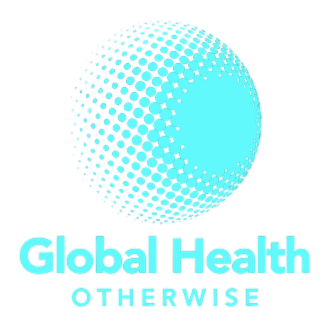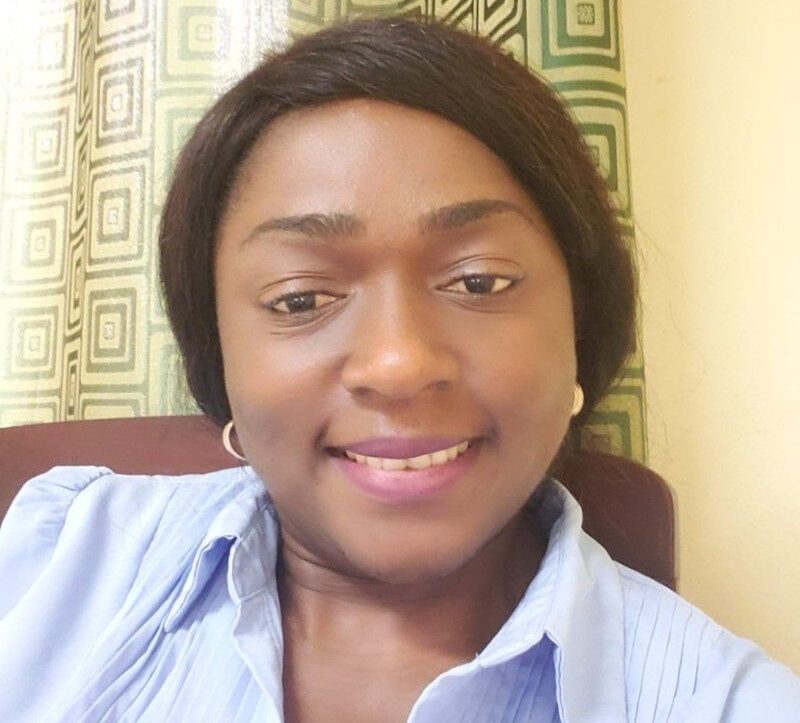Dr. Brigitte Wandji joins us from the End Postpartum Hemorrhage Initiative and Kenya Obstetrics and Gynecology Society to discuss why maternal deaths aren’t fate but system failures, how a postpartum hemorrhage run became a national movement, and why the future of women’s health depends on making survival a political priority.
Global Health Otherwise: You’ve spent over 16 years working across clinical care, program management, and advocacy in maternal health. What drives this work for you?
Brigitte Wandji: I’m an obstetrician-gynecologist and public health physician with a deep commitment to improving maternal health and advancing gender equity. Michelle Obama said it best: communities and countries are only as strong as the health of their women. When I see a woman walk into a delivery ward at 2am and get wheeled out to the mortuary because essential commodities weren’t available, while decision-makers drive to boardrooms in expensive sport utility vehicles the next morning—something is fundamentally wrong. Women’s lives matter. When women die of preventable deaths, it’s not fate, it’s a failure of the system, and it’s one we can fix.
Global Health Otherwise: What does it take to build a meaningful career in maternal health and gender equity?
Brigitte: Success isn’t measured by titles or fellowships—it’s about purpose and the willingness to do things differently. You have to ask the hard questions that make people uncomfortable: Who chooses which issues get attention? Why do policies sit untouched while women continue to die? Why don’t we challenge the systems that fail women long before they reach a hospital? Technical skills matter, but so does what I call “soft politics” or “workplace diplomacy”—learning to push agendas forward while building strategic bridges.
Global Health Otherwise: Where do you see the biggest failures in current approaches to maternal health?
Brigitte: The biggest hurdle isn’t lacking knowledge. We already know how to prevent and manage postpartum hemorrhage, prevent human immunodeficiency virus transmission during pregnancy, build systems that make people less vulnerable to gender-based violence. The real issue is turning that knowledge into collective action. There’s a power imbalance—decisions about priorities and funding are made in distant capitals, not in the communities where the impact is felt. When donor cycles end, programs vanish, leaving behind weakened systems. The urgency is missing. Maternal death is still seen as a technical challenge, not the political and moral crisis it truly is.
Global Health Otherwise: You helped organize the world’s first Postpartum Hemorrhage Run in Kenya. Tell us about that approach.
Brigitte: We decided to take maternal health out of closed-door meetings and into public spaces. Instead of limiting dialogue to experts and policymakers, we brought it to the streets of Nairobi. Thousands showed up: survivors, families of victims, activists, celebrities, journalists. Maternal survival became a trending topic and a political priority. Leaders made public commitments and followed through. When advocacy is loud and visible, it moves the needle in ways that reports and roundtables simply can’t. This year we’re scaling to six other African countries. We won’t stop until it becomes a continental reality that women must not die of preventable maternal deaths.
Global Health Otherwise: How are you working to shift power dynamics in this field?
Brigitte: In Nairobi and Makueni Counties, I coordinated meetings with governors and co-developed programs that trained social media influencers, midwives, nurses, and students to become outspoken advocates. These weren’t just trainees—they became champions and change-makers. They took their message to their platforms and circles of influence, demanding action. This led to maternal mortality being formally recognized as a social and political issue. This is what shifting power looks like: letting those closest to the problem lead the charge.
Global Health Otherwise: What role does technology play in your current work?
Brigitte: I’m Medical Lead for a Femtech startup developing an artificial intelligence and machine learning-powered female health tracking app. This allows me to bring clinical expertise into digital innovation, ensuring emerging technologies are scientifically sound, gender-sensitive, rights-based, and responsive to women’s lived realities. But we must be careful—if we build digital health tools without addressing bias, we risk reinforcing the very inequalities we’re trying to solve.
Global Health Otherwise: What needs to fundamentally change in how we approach maternal health?
Brigitte: We need to stop treating maternal health and gender-based violence as charity cases. These are justice and equity issues. When a country has high maternal death rates or widespread gender-based violence, it’s a reflection of how much value that society places on women’s lives. Maternal deaths shouldn’t just be recorded and filed away—they should spark action, policy reform, and funding. We need governance that demands accountability, financing that doesn’t depend solely on donor generosity, and an end to the narrative that maternal death is inevitable or gender-based violence is “just cultural.”
Global Health Otherwise: How should the next generation of practitioners approach this work?
Brigitte: Global health isn’t neutral. It’s shaped by politics, power, and priorities. Don’t shrink yourself to fit into donor frameworks or institutional expectations. Be courageous. Ask hard questions. Build what doesn’t yet exist. Learn to speak both the language of science and the language of justice. Your expertise gives you credibility, but your voice can drive change far beyond hospital walls. Step into advocacy, share your stories, build coalitions with midwives, nurses, survivors, and community leaders.
Global Health Otherwise: Looking ahead, what concerns and hopes do you have?
Brigitte: Climate change is becoming a maternal health threat that we must integrate into our programming. If we ignore deep-rooted disparities tied to race, income, and gender, childbirth will remain safe only for the privileged few. But there’s hope. Technology can help us spot risks early and hold leaders accountable through real-time data. The next ten years must be defined by accountability—just as we monitor carbon emissions with urgency, we must track maternal deaths with the same intensity. Africa must be at the forefront, not as a testing ground, but as the source of bold, locally rooted innovations.
Global Health Otherwise: Any final message for those entering this field?
Brigitte: We’ve eradicated smallpox. We’re fighting to end malaria, human immunodeficiency virus, tuberculosis, and Ebola with resolute determination and resources. With the same resolve, we can end preventable maternal deaths and gender-based violence. The question isn’t whether it’s possible—it’s whether we’re bold enough to believe that the lives of women dying really matter. Until that day comes, our work is far from done.
Dr. Brigitte Wandji is an OB-GYN and public health physician working with the End PPH Initiative and Kenya Obstetrics and Gynecology Society. She serves on National and Global Steering Committees for maternal health advocacy initiatives across Africa and is Medical Lead for an AI-powered female health tracking platform.

